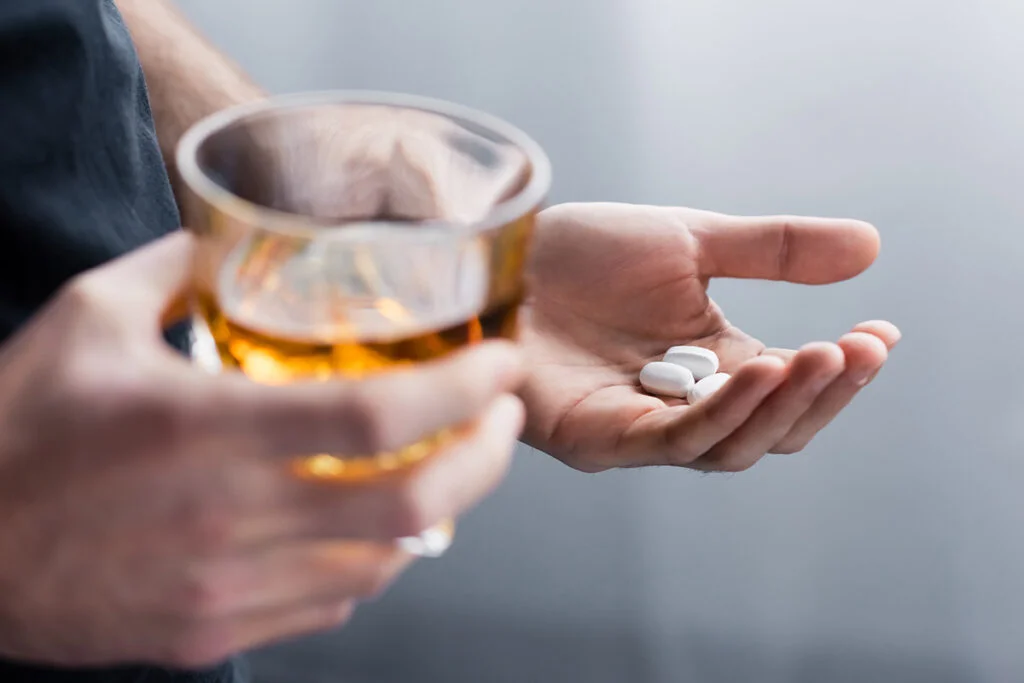In today’s fast-paced world, health issues often demand quick relief. Whether it’s the common cold, chronic pain, or a mental health condition, medications are commonly prescribed to alleviate these ailments. However, a frequently overlooked aspect is the potential risks associated with combining medication, such as hydrocodone, with alcohol. In this article, we will delve deep into the potential dangers of mixing hydrocodone and alcohol. We will also discuss the interaction of alcohol with various other types of medications, providing a detailed list of medicines and their descriptions. So, let’s get started and shed light on this crucial topic.
Hydrocodone and Alcohol: A Risky Combination
Understanding Hydrocodone
Hydrocodone is a potent painkiller classified as an opioid. It is commonly prescribed to alleviate moderate to severe pain, often following surgical procedures or injuries. Opioids work by attaching to specific receptors in the brain, spinal cord, and gastrointestinal tract, effectively reducing the perception of pain.
The Effects of Alcohol on the Body
Alcohol, on the other hand, is a depressant that affects the central nervous system. It can lead to feelings of relaxation and euphoria but also impairs judgment and coordination. When alcohol is consumed, it enters the bloodstream and can interact with various medications, including hydrocodone.
The Danger of Combining Hydrocodone and Alcohol
Now, let’s address the elephant in the room: Is it risky to drink while you’re on hydrocodone medication? The answer is a resounding yes. Combining hydrocodone and alcohol can be extremely dangerous for several reasons:
- Respiratory Depression: Both alcohol and hydrocodone can slow down the central nervous system. When taken together, they can lead to severe respiratory depression, potentially causing breathing difficulties or even respiratory failure.
- Increased Drowsiness: Hydrocodone is known to cause drowsiness. Adding alcohol to the mix intensifies this effect, increasing the risk of accidents, falls, or injuries.
- Impaired Cognitive Function: Alcohol impairs cognitive functions, including decision-making and coordination. When combined with hydrocodone, this impairment can become severe, leading to accidents and poor judgment.
- Risk of Overdose: The combination of hydrocodone and alcohol significantly increases the risk of overdose. Symptoms of overdose may include extreme dizziness, confusion, slowed or irregular heartbeat, and loss of consciousness.
Allergy, Cold, and Flu Medicines
Moving beyond hydrocodone and alcohol, it’s essential to understand the potential risks associated with combining alcohol and other medications. Let’s begin by exploring common over-the-counter medications, such as allergy, cold, and flu medicines. Here are some of the medicine names along with their descriptions:
- Medicine Name: Claritin
Description: Claritin is an antihistamine used to relieve allergy symptoms such as runny nose, sneezing, and itchy or watery eyes. - Medicine Name: DayQuil
Description: DayQuil is a combination medication used to treat symptoms of the common cold and flu, including congestion, cough, and fever. - Medicine Name: Sudafed
Description: Sudafed is a decongestant that helps relieve nasal congestion caused by allergies or the common cold.
Antibiotics and Antifungals
Now, let’s shift our focus to antibiotics and antifungals and understand the risks associated with their combination with alcohol. Here are some common medicines in this category:
- Medicine Name: Amoxicillin
Description: Amoxicillin is an antibiotic used to treat bacterial infections, including respiratory infections, urinary tract infections, and ear infections. - Medicine Name: Fluconazole
Description: Fluconazole is an antifungal medication used to treat fungal infections like yeast infections and ringworm.
Antidepressants
Antidepressants are widely prescribed to manage depression and anxiety. However, they too can interact with alcohol, leading to adverse effects. Here are a couple of common antidepressants and their descriptions:
- Medicine Name: Prozac
Description: Prozac is a selective serotonin reuptake inhibitor (SSRI) used to treat depression, obsessive-compulsive disorder (OCD), and panic disorder. - Medicine Name: Zoloft
Description: Zoloft is an SSRI prescribed for the treatment of depression, social anxiety disorder, and panic disorder.
Anxiety and Epilepsy Meds
Medications for anxiety and epilepsy are crucial for those dealing with these conditions. Here are some examples along with their descriptions:
- Medicine Name: Xanax
Description: Xanax is a benzodiazepine used to treat anxiety and panic disorders. - Medicine Name: Keppra
Description: Keppra is an antiepileptic medication used to control seizures in epilepsy.
Arthritis Medicines
Arthritis medicines are vital for managing pain and inflammation in individuals with arthritis. Here are a couple of examples:
- Medicine Name: Celebrex
Description: Celebrex is a nonsteroidal anti-inflammatory drug (NSAID) used to relieve pain, swelling, and inflammation caused by arthritis. - Medicine Name: Methotrexate
Description: Methotrexate is a disease-modifying antirheumatic drug (DMARD) used to treat various forms of arthritis.
Attention and Concentration Drugs
Medications that improve attention and concentration are often prescribed for conditions like ADHD. Here are a couple of common examples:
- Medicine Name: Adderall
Description: Adderall is a stimulant that contains a combination of amphetamine and dextroamphetamine. It is used to treat attention deficit hyperactivity disorder (ADHD) and narcolepsy. - Medicine Name: Ritalin
Description: Ritalin is a central nervous system stimulant used to treat ADHD and narcolepsy.
Birth Control Pills
Many individuals rely on birth control pills to prevent unwanted pregnancies. It’s crucial to understand how they interact with alcohol:
- Medicine Name: Ortho Tri-Cyclen
Description: Ortho Tri-Cyclen is a combination birth control pill that contains two hormones, ethinyl estradiol and norgestimate. It is used to prevent pregnancy. - Medicine Name: Yaz
Description: Yaz is a birth control pill that contains a combination of drospirenone and ethinyl estradiol. It is also used to treat premenstrual dysphoric disorder (PMDD).
Blood Pressure Medications
Maintaining healthy blood pressure is essential for overall well-being. Here are a couple of blood pressure medications along with their descriptions:
- Medicine Name: Lisinopril
Description: Lisinopril is an angiotensin-converting enzyme (ACE) inhibitor used to treat high blood pressure and heart failure. - Medicine Name: Amlodipine
Description: Amlodipine is a calcium channel blocker used to treat high blood pressure and chest pain (angina).
Blood Thinners
Blood thinners are prescribed to prevent blood clots and reduce the risk of stroke. Here are some examples:
- Medicine Name: Warfarin
Description: Warfarin is an anticoagulant (blood thinner) used to prevent blood clots, stroke, and heart attacks. - Medicine Name: Xarelto
Description: Xarelto is another anticoagulant used to reduce the risk of blood clots and strokes.
Cholesterol-Lowering Meds
Managing cholesterol levels is essential for heart health. Here are a couple of cholesterol-lowering medications:
- Medicine Name: Lipitor
Description: Lipitor is a statin medication used to lower cholesterol levels and reduce the risk of heart disease. - Medicine Name: Crestor
Description: Crestor is another statin used to treat high cholesterol and reduce the risk of cardiovascular events.
Diabetes Medications
Controlling blood sugar levels is crucial for individuals with diabetes. Here are a couple of diabetes medications:
- Medicine Name: Metformin
Description: Metformin is an oral antidiabetic medication used to manage type 2 diabetes. - Medicine Name: Insulin
Description: Insulin is a hormone used to control blood sugar levels in individuals with type 1 and type 2 diabetes.
Painkillers
Painkillers are commonly used to alleviate various types of pain. Let’s explore them further:
General Pain, Aches, Fever, and Inflammation
- Medicine Name: Ibuprofen
Description: Ibuprofen is a nonsteroidal anti-inflammatory drug (NSAID) used to relieve pain, reduce inflammation, and lower fever. - Medicine Name: Tylenol
Description: Tylenol (acetaminophen) is a pain reliever and fever reducer commonly used for mild to moderate pain.
Muscle Pain
- Medicine Name: Flexeril
Description: Flexeril is a muscle relaxant used to relieve muscle spasms and discomfort. - Medicine Name: Skelaxin
Description: Skelaxin is another muscle relaxant prescribed for acute musculoskeletal conditions.
Severe Pain
- Medicine Name: Oxycodone
Description: Oxycodone is a potent opioid used to treat severe pain. - Medicine Name: Morphine
Description: Morphine is another powerful opioid prescribed for severe pain, often associated with surgeries or advanced illnesses.
Sleeping Pills
Getting a good night’s sleep is essential for overall health. Here are a couple of sleeping pills and their descriptions:
- Medicine Name: Ambien
Description: Ambien is a sedative-hypnotic medication used to treat insomnia. - Medicine Name: Lunesta
Description: Lunesta is another sleep aid prescribed to help individuals fall asleep and stay asleep.
A Quick Review
In this comprehensive guide, we’ve explored the potential risks of combining hydrocodone and alcohol. We’ve also discussed the interaction of alcohol with various other types of medications, providing detailed lists of medicines and their descriptions. It’s crucial to understand that mixing alcohol with medications can lead to adverse effects, including respiratory depression, impaired cognitive function, and an increased risk of overdose.
Remember, your health is of utmost importance, and it’s essential to follow your healthcare provider’s advice when taking medications. If you have any questions or concerns about the interactions between alcohol and your medications, don’t hesitate to consult with a medical professional.
FAQs
1. Can I have a glass of wine while taking hydrocodone for pain?
It is strongly discouraged to consume alcohol while taking hydrocodone due to the risk of severe respiratory depression and other adverse effects. It’s best to avoid alcohol entirely during your medication period.
2. Are there any specific medications I should never combine with alcohol?
Yes, certain medications, such as opioids, benzodiazepines, and some antidepressants, should never be mixed with alcohol. Always consult your healthcare provider or pharmacist for guidance.
3. How long should I wait after taking medication before consuming alcohol?
The waiting period can vary depending on the specific medication you’re taking. It’s essential to follow your healthcare provider’s recommendations regarding alcohol consumption while on medication.
4. What should I do if I accidentally mix alcohol with my medication?
If you believe you’ve accidentally combined alcohol with your medication, seek immediate medical attention. Be honest with healthcare professionals about what you’ve consumed to receive the appropriate care.
5. Are there any alternative pain management options that don’t interact with alcohol?
Yes, there are alternative pain management strategies that don’t involve opioids and are safer to use with alcohol. Consult your healthcare provider to explore these options based on your specific needs.






